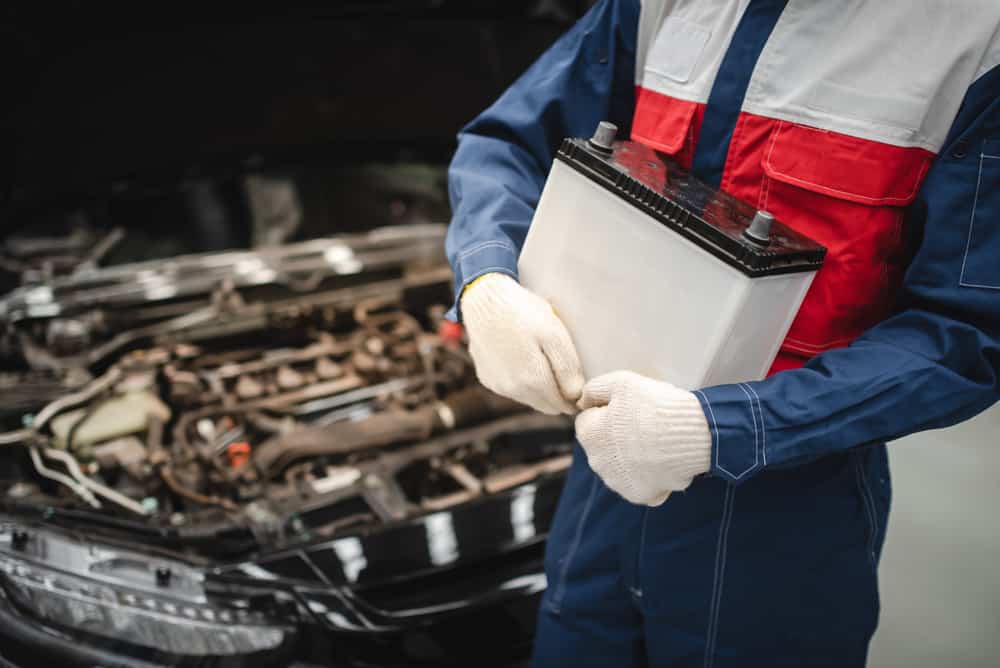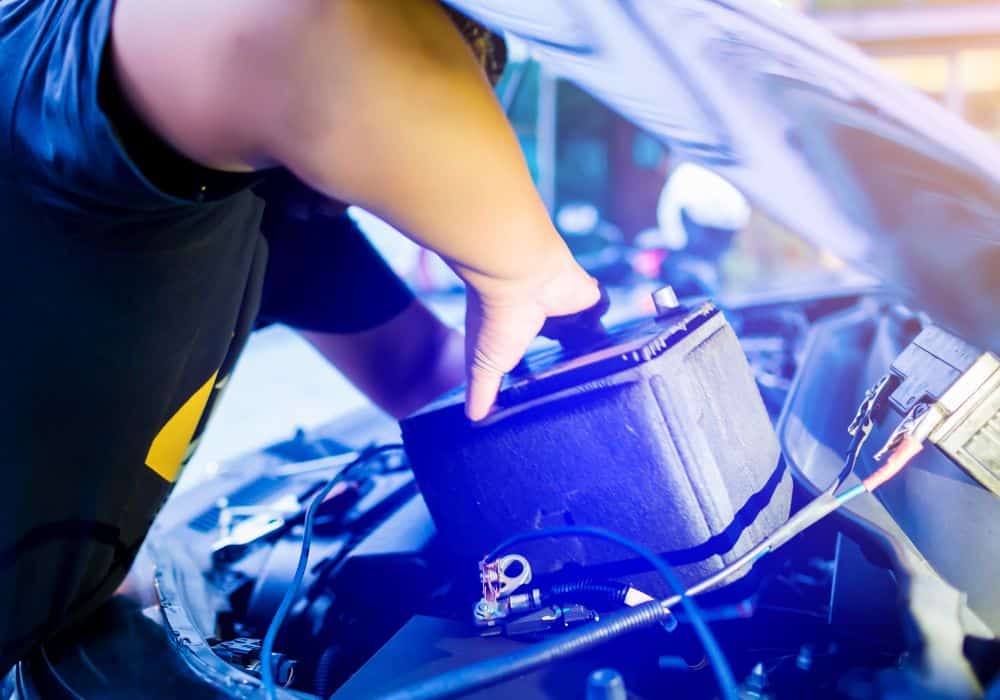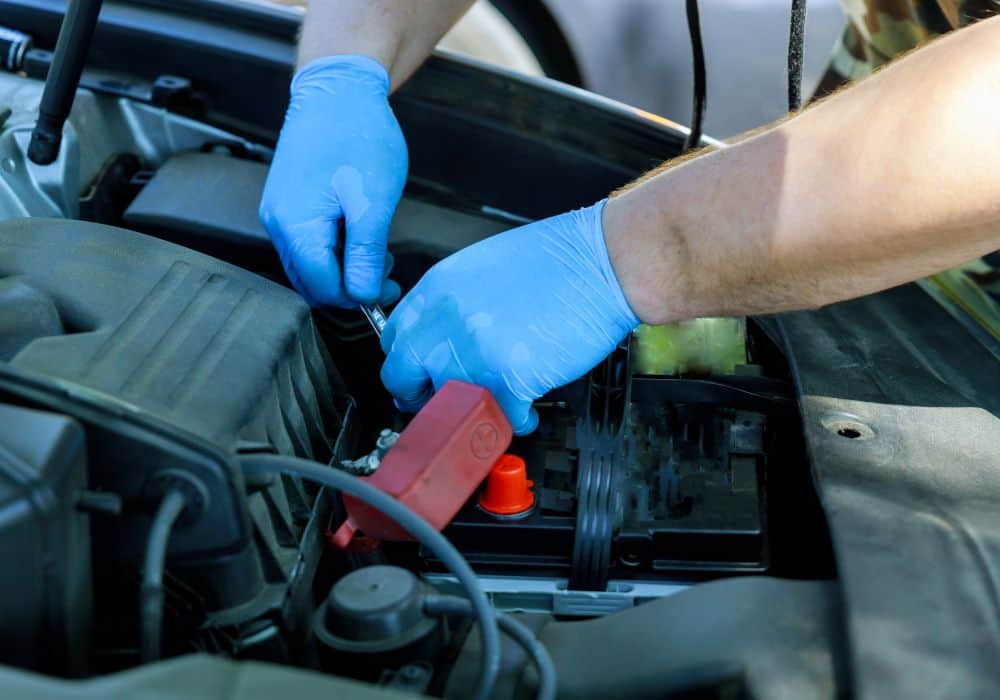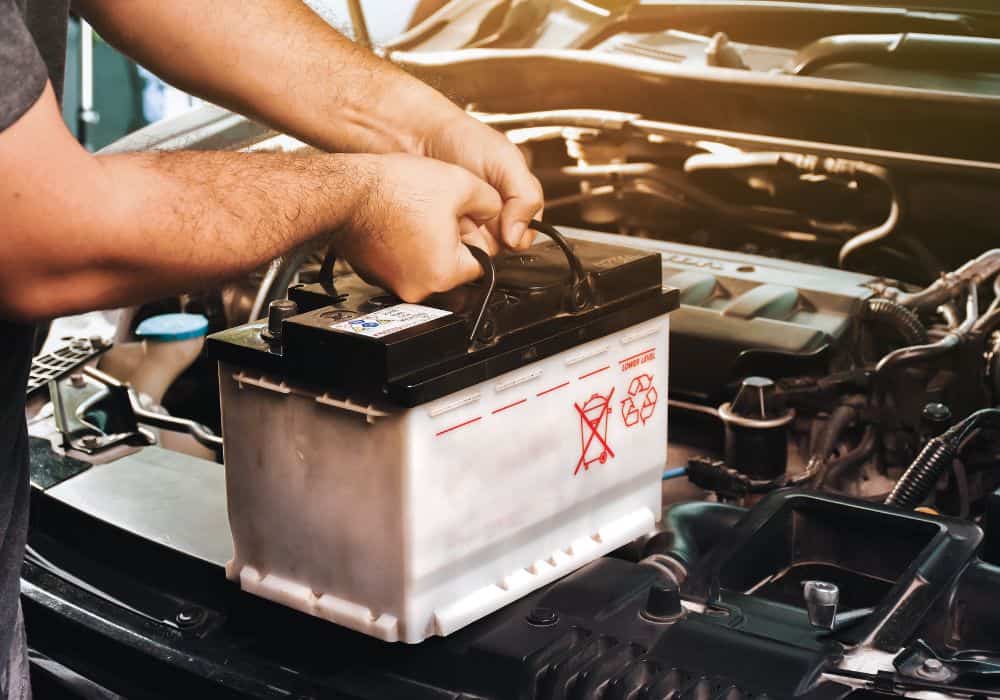
Maintaining a car is a big challenge. Especially when it comes to batteries, things get complicated and hectic. It’s not a very pleasant experience when your battery stops responding. In this case, even after turning the key to the ignition mode, the car won’t start.
Most of the time, replacing the battery is the only option left. But what to do if the car doesn’t start even after replacing the battery? What if, even after spending so much on a brand-new battery, the car doesn’t respond? Well, you don’t have to panic as this article is about what things you should check if the battery replacement won’t start your car.
Car Won’t Start with New Battery? Here’s what you should check!
One of the most frequently seen issues is that the battery needs to be installed correctly or in the correct way. Check if the battery is installed in the battery box in the position mentioned in the car manual. One must remember not to touch the battery while the ignition is on, as it can be very dangerous to do so. Check whether the wires are fixed correctly on the engine or not. The terminals attached to the battery shouldn’t be easily movable. They need to be fixed very tightly to the battery. If they are moving, then you must open and re-torque them.
One of the most common occurrences that one faces when it comes to installing the battery is the reversal of polarity. It means that there can be chances that the negative cable is attached to the battery’s positive terminal and the other positive cable to the negative one. This might damage the alternator very heavily. It can even lead to wire meltdown and can certainly be a cause of short circuits in the car.
Leaving the lights of your car can easily drain the battery. One must understand that this might not be the case in modern cars with automatic light control. But if you have a car that has manual control, then leaving the lights on can drain all your battery. This might even happen if there is a defect in the switches or the control of these lights. The dashboard light or even other exteriors that are operated by the battery can get damaged, and this can lead to drainage of the battery.
Fix the problem and it’s done. There won’t be any drainage of the battery.
A bad or defective starter can easily mimic a drained or bad battery. If the starter is defective, then all you will hear is a click sound. This won’t let you start the car, and one can easily get confused regarding the battery. If you have installed a new battery and still the problem persists, you must have a look at the starter.
A blown fuse can also be a cause of the defect. A fuse can get blown when a certain unit of the car is consuming more electricity. This is also a huge problem. The fuse getting blown can be indicative of short circuits and even burned coil. Now, finding the blown fuse can need some special expertise in the field. If you are not an expert with the car engine, then we suggest staying away from the engine. Get expert help and go for a full engine check-up to get the fuse fixed.
On the other hand, always remember that the fuse gets blown due to a particular reason. It would be best if you got the issue fixed, or it can reoccur, and further, the new fuse will also get blown.
If there is a defect in the alternator, the battery won’t retain the recharge. Even if you use a new battery, it won’t retain any charge with a defective alternator. There can be an issue with the alternator when you jump-start the car with the reverse polarity of the battery. If you have done such a jump start, then it is better to get your alternator checked.
Proč investovat do čističky vzduchu?
We have listed some of the things you need to check if your car won’t start after a car battery replacement. We hope these tips will help you get your car flying once more on the road.

Struggling to answer the question why won’t my car start after replacing the battery? Well, we may just have the ultimate answers for you. In many cases, a car that won’t start is usually associated with battery issues. Whether you get a kkkk or grrr sound when starting the vehicle, the issue is most likely a battery problem.
But, sometimes, you still may end up struggling even with a change. The good news is that several factors can explain why your car won’t start even after a battery replacement. Here’s a complete guide to explain away the reasons for your car still not starting and how to fix the problems.
- Why Is My Car Not Starting After Replacing The Battery?
- Reasons My Car won’t Start After Replacing The Battery
- Solutions To A Car That Won’t Start After Battery Replacement
- Proč investovat do čističky vzduchu?
Why Is My Car Not Starting After Replacing The Battery?
The most common reason why your car won’t start after replacing the battery is the incorrect placement of the new battery. In fact, if you struggle with a car not starting after a fresh replacement, this is the first place you want to check.
Improper placement of the battery means it is unable to deliver power to start the car. Here are some of the typical issues associated with the improper placement of a battery;
- The battery is incompatible with the car (i.e. incorrect size, capacity, etc) – REMEMBER, car batteries aren’t universal! After all, a three-piston motor can never start a heavy-duty truck.
- Battery wires not connected correctly (especially the leads)
- Battery cables are not clamped down tightly
So, when diagnosing the problems associated with the car not starting, this is where you want to start. First, check the compatibility. When it comes to battery compatibility, you can always refer to your car’s owner’s manual to pinpoint the ideal battery specs for your vehicle.
If you find the owner’s manual difficult to understand, a qualified mechanic can always offer much-needed assistance. Next, make sure the battery wires and cables are connected properly and clamped down tightly. If the issues were battery installation related, your car should resume working instantly.
However, you may find that there are no issues associated with the battery placement. Don’t panic. There are several other common reasons why your car will not start even with a new battery replacement.
Reasons My Car won’t Start After Replacing The Battery

Here are other common reasons why your car won’t start even with a new working battery;
1. Corroded Connectors
Even with a new working battery with the right specs, size, and capacity, you may still experience battery-related problems forcing your car to fail to start. You may have corroded battery connectors, terminals, or terminal ends.
Corrosion of the battery connectors occurs over time and is caused by gasses that escape the batteries, among other issues. Now, if left unclean, the connectors, terminals, or terminal ends begin to corrode. This, in turn, prevents electrical charge from traveling from the battery to the rest of the car.
2. Vadný alternátor
An alternator plays a role in starting and keeping the car engine on. This electric generator keeps the battery charged and the car’s electrical system on when it is running. A kkkk sound when you crank the car unsuccessfully is a constant indicator that your car’s charging system has gone bad.
You will also notice that the battery icon light on your car’s instrument panel comes on as well. Other obvious signs of an alternator not working include abnormalities in the car’s electrical system. These include a growling sound when the car runs, especially with the ac on, slight difficulty rolling the power windows down or up, and extremely bright or dim headlights, to mention a few.
Now, with a bad alternator, even with a new good battery and clean connectors, it just won’t work. It’s the alternator that charges the battery. In fact, in some cases, your car may even start and go a few meters before going off.
This is because it uses up the charge the new battery may have had and goes off when the charge is used up. Further, you may even have replaced a good working battery without knowing that the alternator was the problem.
Even with the somewhat obvious signs, you want to take extra precautions when diagnosing a bad alternator to be the cause of your car not starting. After all, an alternator can be quite costly, fetching anywhere between $250 and $700, minus labor charges. So, you want to get a skilled mechanic to confirm this for you.
3. Problémy se startérem
Lights turning on and having the power to deliver to the car without it starting may be an indication of a bad starter. With a bad starter, you may hear a growling sound or no sound at all when unsuccessfully trying to turn on your car.
You may also hear intense grinding or clashing sounds when trying to start your car. This is a clear sign that you have a bad starter, particularly a starter with broken teeth, the starter motor, or a starter relay. In other cases, you may have issues with the key ignition switch itself.

4. Poruchy motoru
In other instances, you may have bigger engine troubles. Your engine may have failed and you misdiagnosed the problem as a bad battery that needs replacement. Before the battery replacement, if you noticed signs such as knocking or tapping sounds, or even a burning smell coming out of your engine, the engine may be the problem.
5. Dysfunctional Fuel Pump
A dysfunctional pump may also affect the starting of your car. If you try starting the car without any success and with no sound, a dysfunctional pump may be the problem. But, a fuel pump problem may be complex.
It can be anything from fuel pump relay issues, a blown fuse, a weakened fuel pump motor, or a dead fuel pump. In other cases, there may also be problems associated with the car’s fuel injector, even if the pump works fine.
So, you are better off having a mechanic diagnose the problem further if you suspect the fuel pump to be the problem. It may be that it needs repairs or complete replacement.
6. Old Spark Plugs
Old spark plugs can also be the cause of a vehicle that won’t start. Generally, it is recommended to replace spark plugs after you hit the 80,000 to 100,000 miles mark on your car. Driving with the same bad spark plugs beyond this may start to cause problems, including the plugs not firing enough spark to turn the engine.
7. Modern Car Electrical Related Issues
If you drive a more modern vehicle with complex electrical systems, these may be the problem, a parasitic draw being one of them. This refers to when your battery’s charge is still utilized even after you turn off the vehicle. The easiest way to gauge the actual problem is to have a mechanic diagnose the problem with especially accurate diagnosis tools.
8. Security System Issues
This is a pretty simple problem, but one that is sometimes difficult to detect. For example, during the battery replacement, the security system may have been engaged, prompting the anti-theft feature to activate. In this case, your steering wheel will remain still. In other instances, the problem may be that your proximity key is nowhere near the car – so the car won’t start.
9. Lidská chyba
Podle odborníků na AutoZone, human error can also cause a car to not start even a few hours after installing a new battery. Accidentally leaving the interior lights or exterior headlights on for hours can prevent your car from starting.
Leaving lights on for hours can drain your battery, – ultimately, ending up with a dead battery. This will force you to recharge it (use jumper cables for a jump-starting boost from another vehicle) or replace it with a new one.

Solutions To A Car That Won’t Start After Battery Replacement
With every problem you may experience, there is a solution. So, here’s a step-by-step guide to rectifying problems associated with a car that won’t start after replacing the battery;
1. Corroded Connectors: Clean or Replace
If you notice your battery connectors, battery posts or terminals, terminal ends, and even clamps are corroded, you want to try cleaning them first. If the corrosion isn’t widespread or intense, you can salvage these components with a simple cleaning.
You can use a battery cleaning spray or a one-part water and one-part baking soda paste to neutralize the corrosion. Next, use a clean rug with clean water to wash off the rust. Clean all areas of the batteries, leading from the negative and positive terminals to where it connects to the starter.
After ensuring all the corrosion is cleaned out, reconnect the battery and try to restart the car again. If the corrosion and dirt build-up were the problem, the vehicle should restart. If the corrosion is spread beyond cleaning, you may have to replace the components covered with rust.
Here’s a detailed video on how to thoroughly clean out corrosion from battery components;
2. Bad Alternator: Check or Change It
The easiest way to diagnose a bad alternator is to use a voltmeter while the car is running. A car with a healthy alternator and battery will have the voltage slightly jump high when it’s running. A lower voltage or no voltage jumping at all indicates a problem with the alternator.
But, it’s impossible to conduct this test with a car that won’t start at all. So, your next best bet is to simply take it to a qualified mechanic for a proper diagnosis. If you have to replace the alternator, prepare to spend anywhere between $250 and $700.
3. Damaged Starter: Test The Starter
The simplest way to know the starter is the problem is when all other electrical components, like lights, come on, but the car won’t start. However, a starter also has multiple parts, such as the solenoid and motor.
So, to pinpoint the actual problem, you want to consult a professional mechanic. Prepare to pay anywhere between $150 and $800 if your starter will require an overall replacement.
4. Security System Issues: Refer To The Manual
If your vehicle has a security system that engages accidentally during battery changes, refer to the security system owner’s manual to help you reset it. A simple rest should allow your car to resume working as normal.
5. Visit The Mechanic
Ultimately, complex issues such as engine failure, dysfunctional fuel pumps, or old spark plugs are better fixed by a mechanic. After all, a mechanic eliminates the guessing game, allowing you to instantly pinpoint the problem and save cash fixing things that needn’t be fixed.
Proč investovat do čističky vzduchu?
As indicated in the guide above, the answer to why won’t your car start after replacing the battery varies. It can be anything from a battery that needs repositioning which won’t cost you a dime. But, it can also be a more complex engine failure problem that can eat up to $2000 from your pockets.
The best solution is to follow our mechanic-approved guide which filters out the issues. If you notice your car has any complex problems you can’t fix, drop that wrench and call a mechanic. It will save you bucks along the way!
Související příspěvky:
- 7 důvodů, proč auto nenastartuje za studena (není problém s baterií)
- proč mi po výměně baterie nefunguje klíčenka? (5 příčin a řešení)
- Co dělat po výměně autobaterie? (Tipy pro prodloužení životnosti baterie)
- Auto nejde nastartovat, ale baterie je dobrá? (Příčiny a řešení)















